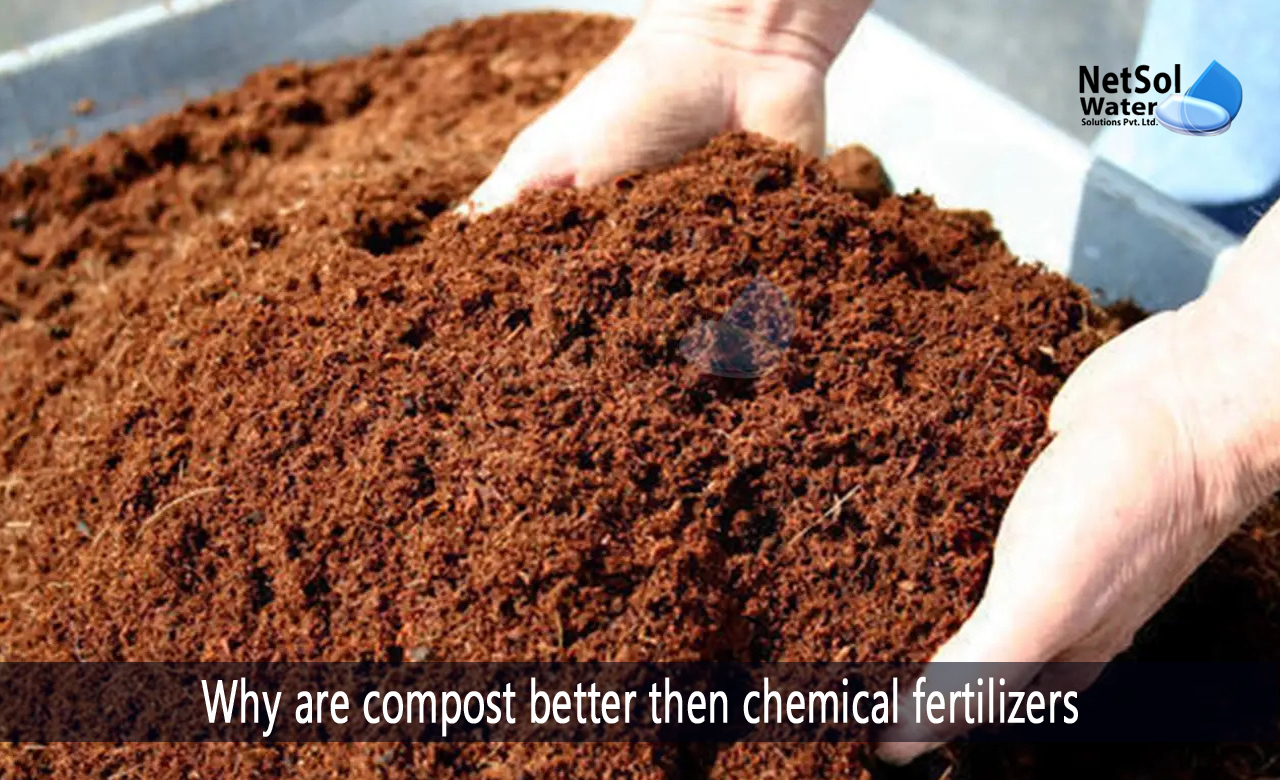Poor soil conditions are frequently blamed for poor plant health. Consequently, it's crucial to create a healthy atmosphere for plants to grow. There are numerous strategies to enhance soil quality, crop output, and financial results, whether you are a gardener or someone who grows vegetables or fruits at home.
But one of the most frequently asked topics is which is preferable: compost or chemical fertilizer!
Chemical/synthetic fertilizers
Chemical fertilizer is a soil amendment that contains a wide range of nutrients, including nitrogen, phosphorous, and potassium, which are crucial for plant growth. However, utilizing chemicals has a number of drawbacks, including negative impacts on the environment, human health, and soil.
Disadvantages of using chemical fertilizers
Chemical fertilizers work quickly, but occasionally they overfeed the plant with nutrients. On plants, it could be exceedingly severe. In addition, fertilizers that include easily accessible and absorbable nutrients get washed away during rain, and end up in water supplies. Algal blooms are brought on by these extra nutrients, which are also known to contaminate drinking water.
Additionally, the beneficial soil bacteria that are necessary for soil fertility can also be harmed, by chemical fertilizers. The cost consideration is another reason why people are looking for chemical fertilizer substitutes. They cost more than compost.
Why are compost better then chemical fertilizers?
To improve the fertility of the soil, compost is a mixture of various organic materials, which breaks down into simple organic and inorganic molecules.
The process of composting is the breakdown of a mixture of organic waste, such as leftover food, fruit and vegetable scraps, garden waste, livestock manure, etc. in a pit or bin. Microorganisms interact with the organic materials, breaking it down and converting it into a natural fertilizer. The decomposed organic waste, also referred to as "black gold," is subsequently employed to improve crop output and soil health.
The benefits of composting
· Environmental friendliness
An eco-friendly way to increase and maintain soil fertility is through composting. Composting has no negative effects on plants, people's health, or the environment because, it doesn't require any chemicals.
· Lowering waste
Waste generation is a major issue nowadays and is becoming worse everywhere. The majority of the waste produced is domestic waste. Therefore, it is beneficial to treat waste at the source. Individuals can follow the composting process at home, to lessen the impact of waste on society as a whole.
Conclusion
The arguments made here all support the idea that compost is preferable to chemical fertilizers. By employing the most cutting-edge creative ideas, you can hasten the composting process. Netsol Water is one of the top businesses offering top-notch, all-natural, and secure options for composting, including solid waste convertors, green waste recyclers, etc.
Netsol Water is Greater Noida-based leading water & wastewater treatment plant manufacturer. We are industry's most demanding company based on client review and work quality. We are known as best commercial RO plant manufacturers, industrial RO plant manufacturer, sewage treatment plant manufacturer, Water Softener Plant Manufacturers and effluent treatment plant manufacturers. Apart from this 24x7 customer support is our USP. Call on +91-9650608473, or write us at enquiry@netsolwater.com for any support, inquiry or product-purchase related query.



